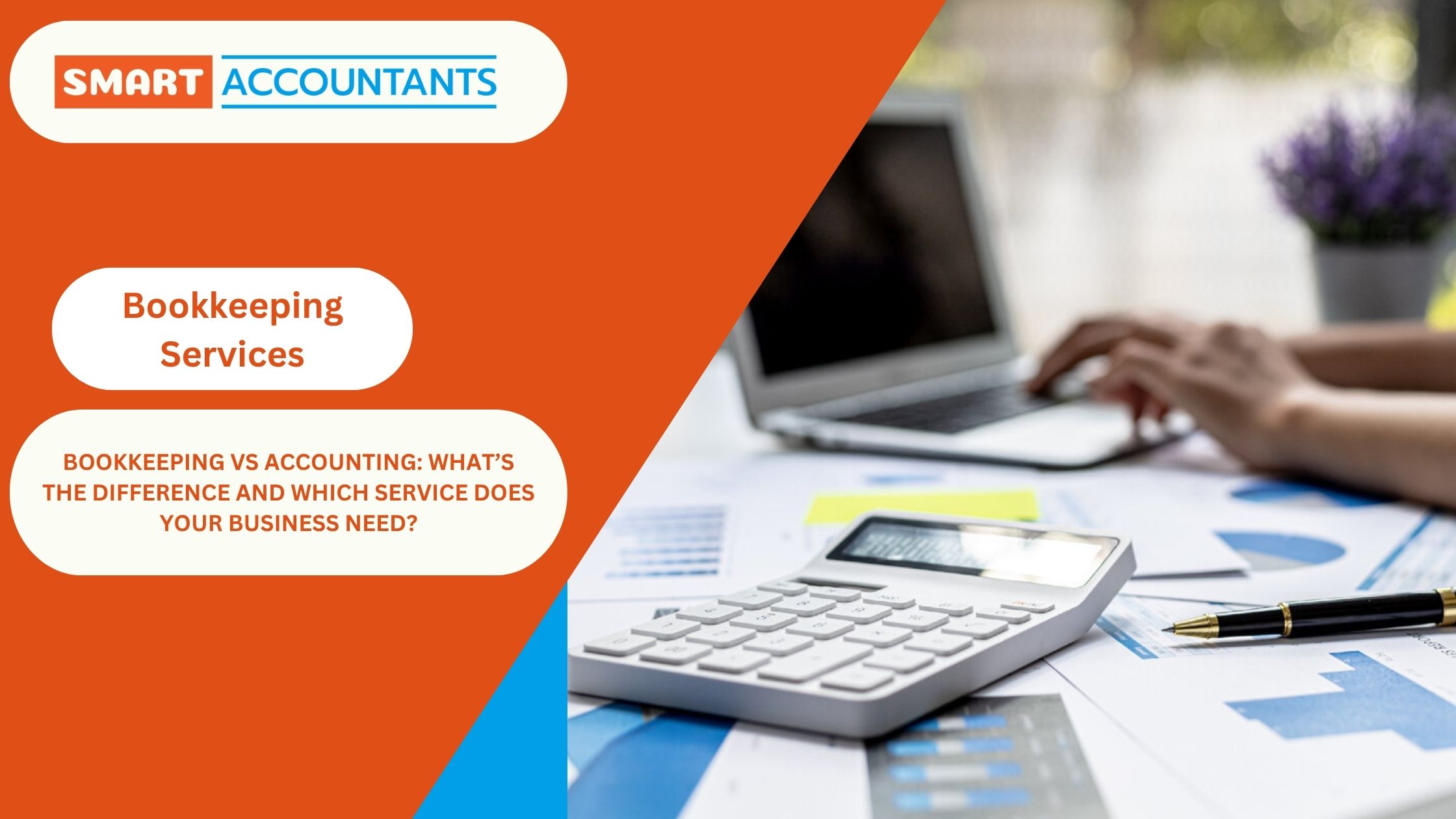Bookkeeping and Accounting—Defined Simply
What Is Bookkeeping?
Bookkeeping is the process of recording daily financial transactions—every sale, every expense, every bank deposit. It’s all about organizing raw data so a business knows where its money is going. Think of it as the maintenance phase of your financial engine.
What Is Accounting?
Accounting steps in after the bookkeeping is done. It takes all that recorded data and turns it into meaningful insights: profit-and-loss reports, cash flow analysis, tax strategy, financial forecasts. While bookkeepers track and categorize, accountants interpret and advise.
Why the Confusion Between the Two?
They’re closely related, and often overlap in small businesses. That’s why people lump them together. But they serve very different purposes—bookkeeping gives you the data, accounting gives you the meaning.
Key Differences Between Bookkeeping and Accounting
Focus and Function
- Bookkeeping focuses on collecting and organizing financial data.
- Accounting focuses on analyzing, summarizing, and applying that data to help guide business decisions.
Bookkeeping answers: What came in and what went out?
Accounting answers: What does it mean and what should we do next?
Tools Used
Bookkeepers often use software like:
- QuickBooks
- Xero
- Zoho Books
Accountants may use those too—but also build models in Excel, handle tax platforms, and use forecasting tools for strategic planning.
Roles and Qualifications
- Bookkeepers don’t always need formal certification, but many are QuickBooks or Xero certified.
- Accountants typically hold degrees in finance or accounting, and may be CPAs.
Both are essential, but they bring different skill sets to the table.
When Do You Need Bookkeeping Services?
Bookkeeping Services for Small Business Operations
Most small businesses need bookkeeping before anything else. It’s the front line—recording transactions, reconciling accounts, tracking cash flow.
Whether you’re a freelancer, a local shop, or a startup, accurate books are non-negotiable.
Managing Day-to-Day Finances
Bookkeepers:
- Record sales and expenses
- Pay bills and invoice clients
- Reconcile accounts
- Keep you organized month to month
If this stuff isn’t handled, your accountant won’t have accurate data to work with.
Staying Tax-Ready
Bookkeeping services make sure your records are organized and audit-proof. Come tax season, there are no last-minute scrambles or missing receipts.
If you’re looking to simplify your monthly tasks, outsourcing bookkeeping services for small business is often the smartest move.
When Is It Time to Bring in Accounting?
Strategic Financial Planning
Once your books are in order, accountants help you see the bigger picture. Want to reduce tax liability? Plan for growth? Secure funding? This is where accounting enters the picture.
Funding, Audits, and Reporting
Investors and banks don’t want raw numbers—they want well-structured reports:
- Profit and loss statements
- Balance sheets
- Financial forecasts
- Break-even analysis
Accountants prepare these and explain what they mean for your future.
Accounting and Bookkeeping Service for Startups
Startups have fast-moving financial needs. You might be:
- Raising capital
- Managing burn rate
- Navigating grants or startup loans
A combined accounting and bookkeeping service for startups ensures both your books and your financial strategy scale with you.
Can You Use Both Bookkeeping and Accounting?
The Benefits of Integrated Services
Here’s where it gets powerful: using both services together.
Your bookkeeper tracks your financials daily. Your accountant uses those numbers to spot patterns, minimize risk, and guide you forward. It’s not either-or. It’s both.
Choosing a Full-Service Provider
Many businesses opt for bundled services that include:
- Daily bookkeeping
- Monthly reporting
- Quarterly tax planning
- Year-end preparation
This keeps your financial ecosystem clean, connected, and strategic.
How to Align With a Trusted Accounting company
When your bookkeeping and accounting come from the same trusted Accounting Company, everything clicks. Your financial reports are consistent. Your tax prep is smooth. Your decisions are data-backed.
Choosing What’s Right for Your Business
Budget and Complexity
- Just getting started? You might only need bookkeeping.
- Have multiple employees, vendors, or revenue streams? You’ll want both.
You don’t need a CFO to run a tight operation—but you do need solid systems.
In-House vs Outsourced
Hiring an internal bookkeeper or accountant is possible, but often pricey. Many small and medium-sized businesses go with virtual business bookkeeping services instead—more affordable, scalable, and efficient.
Finding a Partner You Trust — Learn about us
You need someone who understands your industry, your goals, and your pain points. Someone you can rely on not just for accuracy, but for insight.
Final Thoughts: Why It’s Not Either-Or
Bookkeeping Builds the Foundation
Without accurate transaction records, your entire financial system is shaky. Bookkeeping is the discipline that keeps everything else running smoothly.
Accounting Brings the Strategy
Accounting transforms data into decisions. It answers the big questions: Can I hire? Can I expand? Where’s my money best spent?
Contact us to Get Help From Experts
We help businesses like yours make sense of the numbers. Whether you need bookkeeping, accounting, or both—we’re here to support your growth and your peace of mind. Contact us today!






